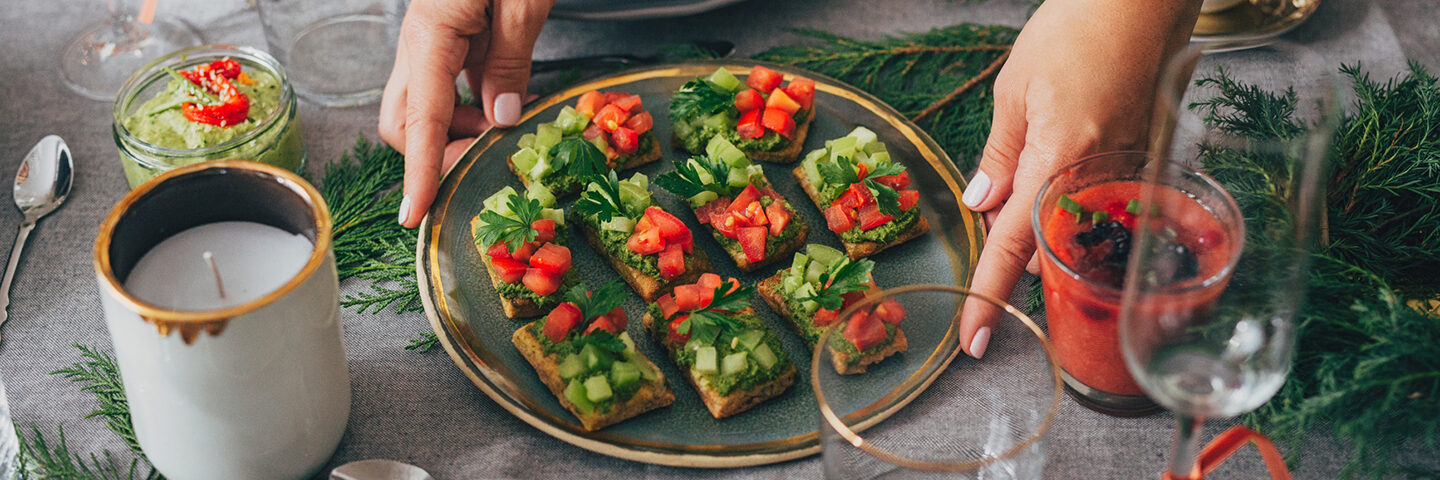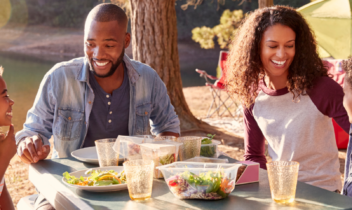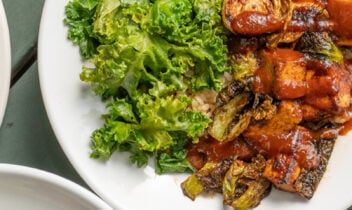
The Role Of Seasonal Experiences In Developing Healthy Habits
Seasonal festivities are not typically associated with healthy eating, but they do provide some interesting opportunities for healthy habit development beyond the holiday period.
Habits develop when people repeat behaviors in a consistent context. Holidays, alas, don’t last long enough to create the kind of repetition that new habits need. But they do give us an opportunity to think about which behaviors we should repeat, and an opportunity to do a little planning to make healthy habit development a little more successful.
Coming as they do, right before the New Year’s resolution season, the holidays may provide an opportunity to set ourselves up for smart, habit-based resolutions in a few weeks’ time.
Holidays can trigger new food trials and discussions of food values and preferences.
An Opportunity For A Healthy Trial
While holiday eating may not be focused on healthy foods, there may be an opportunity to try a few new healthy food trials onto our plates and the plates of children and other loved ones. There is so much emphasis on eating at the holidays, that a “Try this!” approach may be easier to make. This can be an opportunity to create new exposures to fruit and vegetable preparations that can then be repeated in the new year. Number of exposures and variety of fruits and vegetables are both predictors of increased fruit and vegetable consumption, so a holiday kickstart can be useful.
Get (And Give) Some Healthy Habit Ideas
Habit ideas. With so much eating at the holidays, there is also a lot of talk about food. This can be an opportunity to ask friends and family members about their favorite fruit and vegetable preparations and about their most successful habits. Healthy eating is a source of pride, a powerful social emotion, so many times, people are happy to talk about and share their successes.
Set Up The Post-Holiday Fresh Start
After the holidays and, of course, into the new year especially, people are particularly motivated to do their best, by eating better and exercising more. My colleagues, Hengchen Dai and Katy Milkman, and I have called this the “Fresh Start Effect”. If the holidays themselves can give people some promising healthy eating ideas, the post-holiday period of health motivation may result in further success.
Holidays can give us a little time to plan.
Pre-commitment Opportunities
When we pre-commit to specific actions in advance, we are more likely to do them. Especially when those pre-commitments are for specific behaviors at specific times and places. Behaviors like committing to bringing the veggie charcuterie tray to the party, or even pre-ordering the side dishes like brussels sprouts or potatoes from your local restaurant, caterer or retailer can help get the veggies on the table. Order that fruit tray from your local grocer or promise to bring the fun and colorful fruit cabobs this New Year’s Eve. We can use the holiday downtime to think about what kinds of regular behaviors might work for us, too, and we can verbalize them to friends and family year-round.
Smart Habits & Resolutions With A Little Coordination
Wendy Wood, the author of Good Habits, Bad Habits, notes that a habit is “not what the action is.” Rather, the habit is “how you perform an action”.
So what exactly should we be aiming for in resolutions focused on creating new habits? It’s the “how”! The what is the obvious part (for example, eating more fruits and vegetables). But it’s the how that will mark our success. Success is when we are “eating some fruits and veggies effortlessly.” And to be effortless, it has to be something easy enough, something that you like, and something that can be done in the same place and time most days so it can be “routinized”. And there is, of course, some reward. It has to almost be as routine as brushing your teeth! The reward: A clean-feeling mouth and fresh breath!
For me, one routinized habit for several years has been the preparation of fruits and veggies for my family each morning. The prep is modest – e.g., washing, some cutting, occasional steaming, and packing into lunch bags or boxes. Generally, if it gets packed, it gets eaten, so prepping has been the bottleneck. The reward: Feelings of pride and happiness knowing that I am contributing to my health and happiness as well as that of my family! I am now an accomplished prepper!
Conclusion
The holidays are a great time to share food and experiences with friends and loved ones. The focus on food experiences at holidays creates lots of opportunities to discuss food values and preferences, and to plan healthy food ambitions. With a little bit of clever nurturing, we can create holiday moments that support successful New Year’s resolutions. Specifically, we can start to move ourselves closer to habitual, nearly effortless and fun fruit and vegetable consumption.


